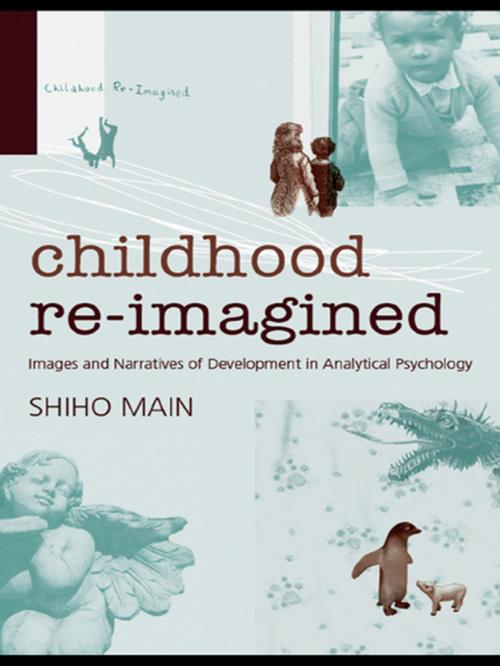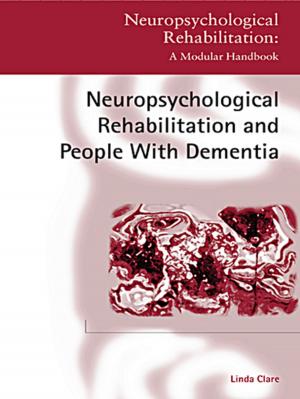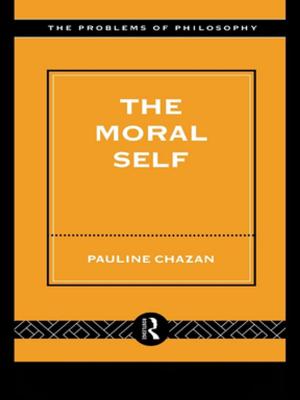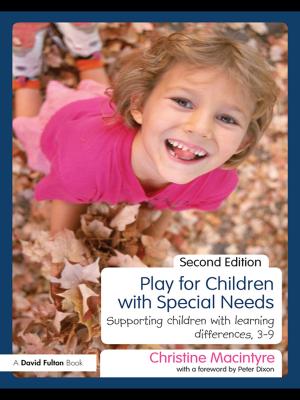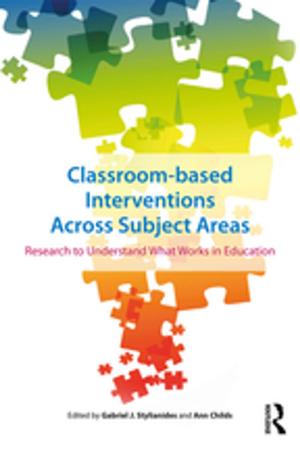Childhood Re-imagined
Images and Narratives of Development in Analytical Psychology
Nonfiction, Health & Well Being, Psychology, Child & Adolescent, Adolescent Psychology, Mental Health| Author: | Shiho Main | ISBN: | 9781134173709 |
| Publisher: | Taylor and Francis | Publication: | August 7, 2008 |
| Imprint: | Routledge | Language: | English |
| Author: | Shiho Main |
| ISBN: | 9781134173709 |
| Publisher: | Taylor and Francis |
| Publication: | August 7, 2008 |
| Imprint: | Routledge |
| Language: | English |
What can Jungian psychology contribute to understanding children and childhood?
Childhood Re-imagined considers Carl Jung's psychological approach to childhood and argues that his symbolic view deserves a place between the more traditional scientific and social-constructionist views of development. Divided into four sections this book covers:
- Jung on development
- theoretical and methodological discussion
- the Developmental School of analytical psychology
- towards a Jungian developmental psychology.
This book discusses how Jung's view of development in terms of individuation is relevant to child development, particularly the notion of regression and Jung's distinction between the child archetype and the actual child. It shows how Jung's understanding of the historically controversial notion of recapitulation differs from that of other psychologists of his time and aligns him with contemporary, post-modern critiques of development. The book goes on to investigate Fordham's notion of individuation in childhood, and the significance of this, together with Jung's approach, to Jungian developmental psychology and to wider interdisciplinary issues such as children's rights. Main also examines the plausibility and usefulness of both Jung's and Fordham's approaches as forms of qualitative psychology.
Through its detailed scholarly examination of Jungian texts and concepts Childhood Re-imagined clarifies the notion of development used within analytical psychology and stimulates discussion of further connections between analytical psychology and other contemporary discourses. It will be of particular interest to those involved in analytical psychology, Jungian studies and childhood studies.
What can Jungian psychology contribute to understanding children and childhood?
Childhood Re-imagined considers Carl Jung's psychological approach to childhood and argues that his symbolic view deserves a place between the more traditional scientific and social-constructionist views of development. Divided into four sections this book covers:
- Jung on development
- theoretical and methodological discussion
- the Developmental School of analytical psychology
- towards a Jungian developmental psychology.
This book discusses how Jung's view of development in terms of individuation is relevant to child development, particularly the notion of regression and Jung's distinction between the child archetype and the actual child. It shows how Jung's understanding of the historically controversial notion of recapitulation differs from that of other psychologists of his time and aligns him with contemporary, post-modern critiques of development. The book goes on to investigate Fordham's notion of individuation in childhood, and the significance of this, together with Jung's approach, to Jungian developmental psychology and to wider interdisciplinary issues such as children's rights. Main also examines the plausibility and usefulness of both Jung's and Fordham's approaches as forms of qualitative psychology.
Through its detailed scholarly examination of Jungian texts and concepts Childhood Re-imagined clarifies the notion of development used within analytical psychology and stimulates discussion of further connections between analytical psychology and other contemporary discourses. It will be of particular interest to those involved in analytical psychology, Jungian studies and childhood studies.
